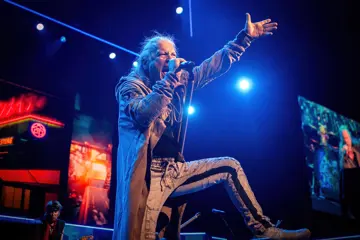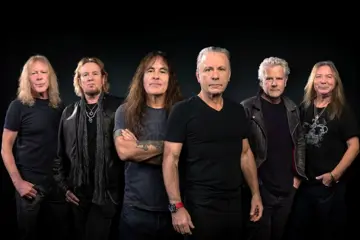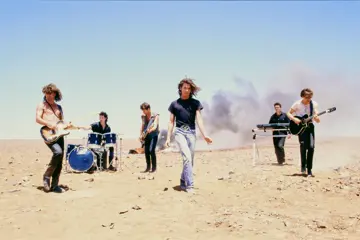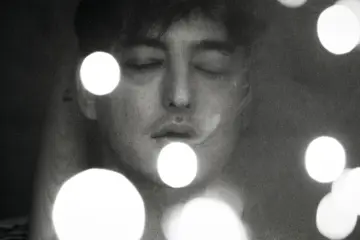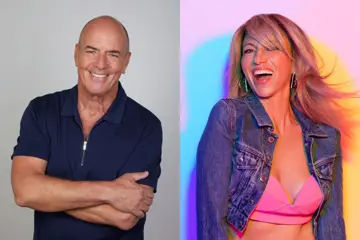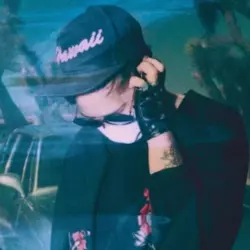 Unknown Mortal Orchestra
Unknown Mortal OrchestraWhen Ruban Nielson – founder, songwriter, guitarist and vocalist of Unknown Mortal Orchestra – answers our call, he's in the recording studio in the basement of his Portland home where he famously conceived and recorded the entire Unknown Mortal Orchestra album that so many considered to be one of 2011's finest releases.
“I'm working on a remix for this girl Sky Ferreira, who is a pop musician,” the New Zealand-bred musician says softly, before casually adding “and I'm working on this thing for Trent Reznor, a remix thing for How To Destroy Angels [Reznor's latest project with wife Mariqueen Maandig and long-time collaborator Atticus Ross].”
Recently, in that very same studio, Nielson wrote and recorded the band's eagerly awaited follow-up album, II, which will be released worldwide early in the New Year, just after the band duck over to Australia and New Zealand for a very quick couple of dates. “It's pretty much exactly how I was hoping it would turn out, so I'm pretty excited,” he says of the new record. Making the records autonomously allows Nielson the chance to ensure his undisturbed vision makes it onto the wax. “I like records where you kinda get lost in this particular kind of world that has its own rules and stuff.”
The huge, worldwide acclaim that came off the back of the debut Unknown Mortal Orchestra LP came out of nowhere. Tapes of the songs Nielson had put together were circulated and something of a bidding war eventuated, Fat Possum eventually securing the rights to release the record on a one-album deal.
Don't miss a beat with our FREE daily newsletter
“I feel a lot more prepared,” he says in reference to the imminent release of II. “Everything about the first record was a bit touch and go; I didn't expect it was gonna get the response that it got and when I was recording that stuff I didn't even think about releasing it; I didn't think it was gonna get released. So I was a little bit shell-shocked about the whole thing.
“The second record is a little bit about what happened. With this one it's like I took stock while I was making this record and figuring a bunch of stuff out. The record helped me figure out what was going on, what was going on with myself and my emotions and what I wanted in life.”
It wasn't just a journey into his self, but into the entity Nielson had created, and he found that there were elements of Unknown Mortal Orchestra that needed to change. “Then there was sort of a whole business part; I changed drummers, I changed my manager and I changed my label, because I knew exactly what I wanted so I went out and set that up and now I feel like I'm going into a situation that I'm really ready for. Everything's a lot better now, I'm looking after myself a lot better and the band knows what it's doing.”
Greg Rogove has taken the spot behind the kit, the Devendra Banhart drummer filling the shoes of Portland wunderkind Julien Erhlich, who remains a friend of the band, but just didn't fit. “The drummer that I started touring with, I didn't know him at all,” Nielson says in reference to the teenaged Erhlich. “So we went out on the road for a year-and-a-half and we were complete strangers when we started it. He is a great drummer and that was as much as I knew when we started. We're still friends and stuff, but some people you can spend every day with – day-in and day-out – and some people you can't. He was a kid who had never toured before and he got thrown into this whole thing of touring and it wasn't very healthy for him.”
The touring that Unknown Mortal Orchestra undertook was intense, close to two years of straight travel and, with that, partying. Drugs were a big part of Nielson's life during this touring cycle and press material for the band openly states that the songs were borne from the hedonism of the past few years. “That's one thing that's always been a big influence,” he admits.
“You can get away with a lot of stuff when you're in a band where people expect you to be wasted all the time. You can do things like take acid every day for weeks on end and nobody bats an eyelid. They'd be more surprised if you weren't doing that. I got a little bit carried away sometimes.
“But when I was making the record I hardly did any drugs at all. It's as much about the records that I listen to than anything else. It's not like [drugs] made me think a lot weirder; a lot of what I do isn't responding to drugs, it's responding to the music that I love and wanting to create music that has those elements.”
Another huge influence on Nielson's songwriting in the lead-up to album number two was the knowledge that these songs would be performed live, with a full band, and not just left sitting dormant on a hard drive in his basement in Portland. “I gave in to the concept of the live band a lot more and I let The Beatles and Led Zeppelin come through a lot more, which I was holding back a little bit on the first record because I didn't want to be that obvious.
“We just started rehearsing the new album and we did like five days of playing the new stuff and I think some of it is a lot heavier and a lot more rock than anything that's on the first record, so I think people might be kinda surprised about that. I let riffs into it in a way that I didn't really allow to happen on the first record and I think it makes it a lot more fun and I think it makes the live show a lot more exhilarating. It's a lot easier for us to make it sound exactly like the record than the first one.”
After a couple of years of touring and playing shows with nothing but a 30-minute LP from which they could select tracks, Nielson is very much enjoying the idea of adding a whole new set of songs into the mix and extended their live show into something far longer and more psychedelic. “Yeah, it's awesome!” he chirps. “We have a really long set now, it's like eighteen songs. That's really cool. I think this band is the kind of band who would be doing a lot better if the set was really long, because there's a lot of people who like this kind of music but they want to be there watching the band for a long time, spacing out and stuff, but with half-an-hour worth of music you're just kinda hitting it and leaving the stage right when you're getting warmed up.”
There will be a lot more opportunity for Unknown Mortal Orchestra to develop their live show in the coming months, the band's leader revealing that all he wants to do is get on the road and, more importantly, get on stage. “We're gonna do a really big headline tour in the States and then from there we'll probably be going back to Australia – some time closer to the middle of the year. I think I'm just looking forward to working hard and playing tonnes of shows; we just like playing music. All the stuff that goes on in between walking on stage and walking off stage is just a hassle.”
Unknown Mortal Orchestra will be playing the following dates:
Saturday 29 December - Tuesday 1 January - Peats Ridge Festival, Glenworth Valley NSW
Sunday December 30 - The Pyramid Rock Festival, Phillip Island, Melbourne VIC
Tuesday 1 January - Anita's Theatre, Wollongong NSW
Wednesday 2 January - The Standard, Surry Hills NSW




